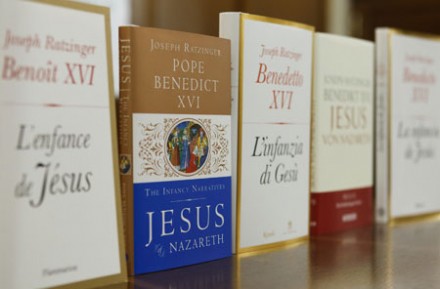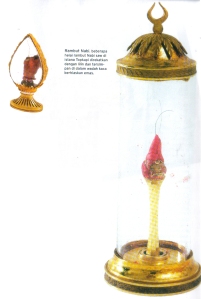Pro-Life Candlelight Vigil outside Dail Eireann on Tuesday 4th December at 4pm. All who believe in the cause of life, in protecting the rights of children, are invited to come for a peaceful vigil.
*
These are indeed extraordinary days here in Ireland. Over the past couple of weeks our country has been transformed as the battle for life is in full swing. On one side the pro-abortion movement, the media and pro-abortion TDs and senators clamour for the legalisation of induced abortion, on the other the pro-life movement, uniting people of all religions and none, is trying to get its message across in very difficult situations and with a media that is hostile to the cause of life. I'm trying to keep up with it all, but things change moment by moment.
A few observations. The Savita Halappanavar case is still being used by the pro-abortion movement, and yet the full facts have yet to be established. So far we have only heard one side of the argument - the hospital and medical team involved have not yet spoken, nor can they as the investigation is ongoing. Halappanavar's husband seems to be changing his story every time he is interviewed and that is only contributing to the confusion. For an excellent analysis of all this pop over to The Thirsty Gargoyle - his great quality in such issues is clarity. He has two good posts I recommend you read: one dealing with the discrepancies in the story of Savita's death, all being ignored; and the other concerns the X-case judgement which is much more restrictive than people think.
One thing the Gargoyle mentions is the level of debate which is going on. To be honest it is vile. I know from friends in the pro-life movement that they are getting emails that are sickening and seriously threatening: I would fear for the lives of some prominent members of the pro-life movement. I hope that pro-lifers are not sending threatening or abusing messages to people in the pro-abortion movement. I would warn anyone considering it not to do so - we have truth on our side, engaging in a war of abusive comments and violence will only undermine our cause. This is a difficult time and I know from experience that the pro-abortion movement plays dirty and some of its members are well versed in tactics to taunt and provoke - they must not succeed in this. Regardless of what they believe, those calling for abortion are human beings too and must be treated with respect even if they do not treat us in the same way. The greatest sign of the authenticity of our cause is our consistency - we must witness to the dignity of life by respecting all life.
Another reason why we must be calm and dignified concerns media coverage. With the media a big player on the other side, journalists and television teams will try to paint pro-lifers as violent, anti-woman and extremist: we must not give them fodder for their articles and news items. They too will try to provoke and be sure that if any pro-lifer slips even just once there will be a camera there to record the moment and it will be shown in the worst possible light. We have speakers who can deal with the media: David Quinn, Caroline Simons, Patricia Casey, Sen. Ronan Mullen, Breda O'Brien for example - leave the arguing to them and support them with your prayers and with emails and letters of support. These, and others engaged in the media battle, are having a very tough time we should not be making it any harder for them to defend the pro-life cause: instead we stand behind them and give them every help.
Also, if you have a few quid to spare, and even if not, send something to the pro-life organisations - they will need resources to help them over the next few months as this situation develops. The pro-abortion groups have huge resources thanks to Chuck Feeney and other supporters overseas; they also have the might of Planned Parenthood and Marie Stopes behind them.
More news. No doubt you read Caroline Simons's excellent response to the expert group's report, if not you can find it here; she also has a good article, published in The Examiner, on the debate. Bishop William Murphy of Kerry has pointed out that if abortion is introduced, regardless of limits, it will lead to widespread abortion in the country: experience has shown that this is true. Regarding the abuse the pro-life movement is getting, I refer you to the Iona Institute's website where some of the emails and comments they are getting have been published; demonic! I am shocked to see that an RTE producer/presenter has openly sent a hateful comment to David Quinn. Many of these vile comments have appeared on Twitter - I'm glad I never opened a Twitter account - Lord knows what creatures would be crawling out of the woodwork in response to my posts! It seems, while there is a positive aspect to Twitter, it has been used to abuse and attack, and it has actually helped accelerate what has become a culture of denigration and abuse. Another interesting article on the Iona Institute site concerns the expert group's recommendation that the conscientious objection of doctors to abortion must be limited.
I notice the many of the comments attack our Catholic faith - so much for religious tolerance! But remember, the issue of abortion is not a religious issue - it is a human issue, and it unites men and women of all religions and none. In this battle we stand side by side with those with whom we may have very little in common and may well have argued with in the past: but our common humanity unites us in this cause - so let us foster that and let us build a culture of life for all people regardless of race, gender, religion or views.
I posted a notice about the Pro-Life Vigil on Tuesday at the Dail above: spread the word and get as many people as possible to come. Bear in mind, extreme calm and patience will be required, I have no doubt the pro-abortion extremists will be there and will provoke and be most vile in their behaviour: they must be ignored, so be prepared.
If you, or know people who cannot come: pray and pray hard. If you or they can, offer a Holy Hour from 4.30-5.30 on Tuesday. I ask our Bishops and my brother priests to come and stand with the laity in this act of witness to life. It would be great if our priests and religious offered up their Offices on Tuesday for the Vigil and the cause. And if priests can offer Masses for the same cause on or near Tuesday it would be great. And all our friends in other countries, I ask you to please pray for us in Ireland in these most difficult times.










